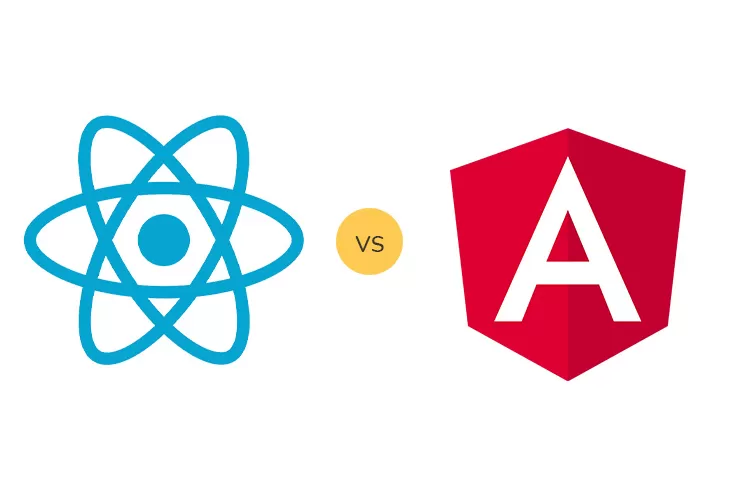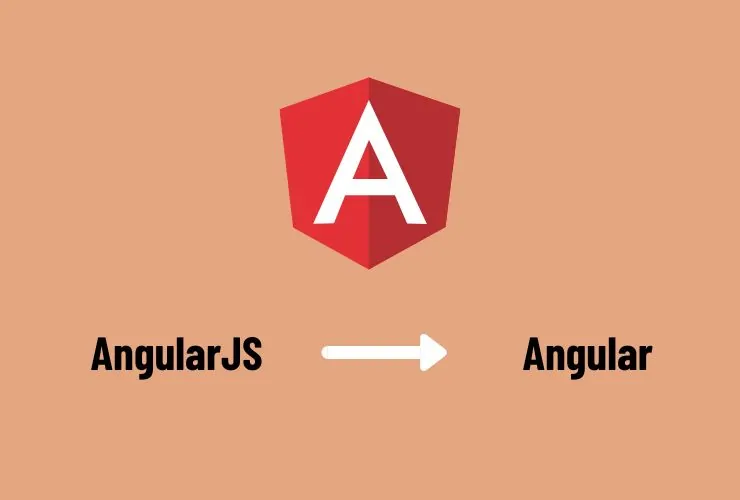When developing modern web applications, ReactJS and AngularJS are two of the most popular JavaScript frameworks available. Both come with their own unique strengths and weaknesses, making it essential to carefully consider which one best suits your project’s specific requirements. In this article, we will explore the key differences between ReactJS and AngularJS. By understanding these distinctions, you can make an informed decision on which framework is the best fit for your next web development project.
Overview of ReactJS and AngularJS
ReactJS, a JavaScript library developed by Facebook, is widely used for building user interfaces, particularly for single-page applications. What sets React apart is its ability to help developers create reusable UI components, simplifying the process of managing and updating code. Additionally, React’s use of a virtual DOM enhances rendering efficiency, significantly improving overall performance.
AngularJS, developed by Google, is a complete front-end framework offering a robust solution for building web applications. While part of the broader Angular ecosystem, with Angular 2+ serving as its modern successor, AngularJS (or Angular 1.x) remains widely used in legacy systems. Notably, AngularJS includes features like two-way data binding and dependency injection, along with an extensive toolkit for creating complex applications. These capabilities make it an appealing choice for developers handling intricate projects.
Key Differences Between ReactJS and AngularJS
1. Architecture
- ReactJS: ReactJS is a JavaScript library that focuses solely on the “View” layer of the MVC (Model-View-Controller) architecture. It offers developers flexibility, allowing them to choose their own architecture or seamlessly integrate React into existing projects
- AngularJS: AngularJS, on the other hand, functions as a comprehensive MVC framework. It provides a structured, opinionated approach, equipping developers with tools for data handling, routing, and state management—all in one package.
2. Learning Curve
- ReactJS: React has a relatively lower learning curve for developers familiar with JavaScript. However, it requires learning additional libraries for routing, state management (like Redux), and other features.
- AngularJS: AngularJS has a steeper learning curve due to its comprehensive nature and reliance on concepts like dependency injection and two-way data binding. However, once mastered, it provides a powerful and integrated development environment.
3. Performance
- ReactJS: React is known for its performance benefits, thanks to the virtual DOM that minimizes direct manipulation of the actual DOM. This results in faster rendering and updates, making React a preferred choice for high-performance applications.
- AngularJS: AngularJS uses a real DOM, which can slow down performance for large-scale applications with numerous UI components. However, Angular’s comprehensive features can streamline development and reduce the need for third-party tools.
4. Community and Ecosystem
- ReactJS: React has a large and active community, with extensive third-party libraries and tools available. It’s widely adopted, ensuring strong support and regular updates from the developer community.
- AngularJS: AngularJS also boasts a strong community and has the backing of Google. However, the shift to Angular 2+ means that some newer projects prefer the modern Angular over AngularJS, though the legacy community remains active.
5. Use Cases
- ReactJS: Ideal for building dynamic, high-performance user interfaces where flexibility and reusability of components are essential. It’s commonly used in applications like Facebook, Instagram, and Airbnb.
- AngularJS: Best suited for large-scale enterprise applications that require a robust framework with built-in tools and features. It’s often used in complex applications like e-commerce platforms and content management systems.
Which Framework Should You Choose?
The decision between ReactJS and AngularJS ultimately depends on your project’s requirements and your team’s expertise:
- Choose ReactJS if you need a flexible, high-performance library that can be integrated into existing projects or if you’re building a dynamic user interface with reusable components.
- Choose AngularJS if you require a comprehensive framework with built-in tools for developing a complex, large-scale application with a structured approach.
Both ReactJS and AngularJS come with distinct advantages. Your decision should reflect your project’s specific needs, your team’s familiarity with the technology, and the scalability requirements of your application. By recognizing the strengths and limitations of each framework, you can confidently choose the one that will drive the success of your web development project.














